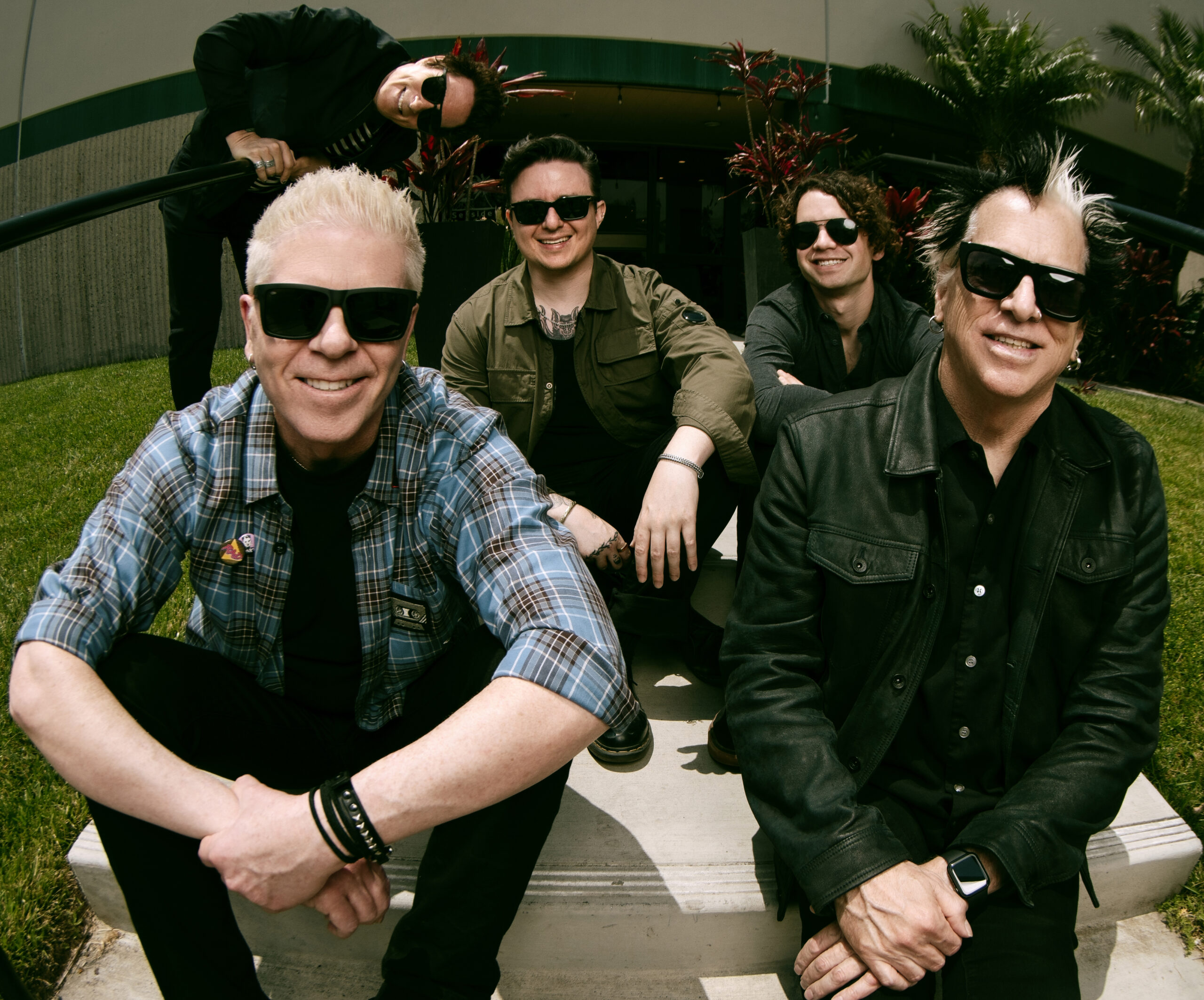
In 2024, the Offspring could be forgiven if they want to take it easy and rest on their career achievements. After all, the Orange County natives have been playing together for 40 years, broke into the mainstream with Smash 30 years ago, and have effectively remained one of the biggest names in rock and punk ever since.
Yet the combination of vocalist/guitarist Dexter Holland and lead guitarist Kevin “Noodles” Wasserman isn’t content with coasting at the age when other long-running punk bands are hanging up their instruments. Instead, they’re releasing Supercharged, their 11th album which is a straightforward blast of their brand of rock and roll.
More from Spin:
Samara Joy Dreams in Jazz
The Cure Are Feeling ‘Fragile’ On Latest ‘Lost World’ Single
The Decline: The Last Quarter-Century of NOFX in Their Own Words
The roots of the new album (out Oct. 11 on Concord Records) date back to before their last album, 2021’s Let the Bad Time Roll. Following a break from writing new music through the majority of the 2010s, the rockers — which also include bassist Todd Morse, multi-instrumentalist Jonah Nimoy, and drummer Brandon Pertzborn — put together that album just in time for the COVID-19 pandemic to shatter their plans. Without live shows to play, the band turned to their existing material for a source of inspiration.
“It felt like we entered a real creative period right before we finished Let the Bad Times Roll, and then the pandemic kind of sucked the life out of it,” Holland says from the bar of Chicago’s Waldorf Astoria hotel, just hours before their set at Riot Fest last month. “We got in the studio and went back over all the old songs, like ‘How are you strumming that? Let’s do this instead. What are the drums doing? Stick with the drums.’ We tightened everything up, and that helped us survive the pandemic without going crazy.”
That introspection and correction of bad habits in old tracks birthed ideas for new songs, further fueling the creative momentum the Southern California legends felt on their latest album. But for a band that prides itself on its live shows — and has consistently been playing the biggest stages around the world for decades — it’s taken the Offspring much of their career to find the perfect balance for their ideal studio life (or “the snake to my mongoose” as they quote Austin Powers).
“A lot of bands will go ‘OK, we’re going to set aside six months to do the next record, but it’s just too hard to do that for us,’ Noodles says. “You just get burned out and stuck on a song, so we’d go for a week or two at a time ever since we finished the last record and gradually put the album together.”

Brandon Pertzborn, Noodles, Jonah Nimoy, Dexter Holland, Todd Morse (Credit: Daveed Benito)
Musically, one of the biggest challenges for Holland and Noodles is finding new ways to experiment with their sound without completely changing direction. While many bands often want to move out of their original niche or get bored of their subgenre, the Offspring have released massive hits ranging from in-your-face punk rock (“Bad Habit,” “Hammerhead”) to their classic radio-friendly pop-punk (“Self Esteem,” “Come Out and Play”) to reggae-infused comedic hits (“Pretty Fly [for a White Guy],” “Why Don’t You Get a Job”) — meaning there aren’t too many adjacent territories they haven’t conquered.
“You’ve got to be different, but you’ve got to be the same — which is kind of an oxymoron,” Noodles says.
“You want to sound like yourselves, but you have to add something new to the equation that you haven’t done before,” Holland adds. “A good example of that is ‘You’re Gonna Go Far, Kid,’ because we hadn’t done a song quite like that before. It was a little bit different tempo and had some keyboard in it and stuff, so it’s something we look to when we say ‘OK, what are we going to do on this record that is different but the same?’ On this album, ‘Come to Brazil’ is completely different. We used to joke about it because we saw it on all of our social stuff, and it just cracked us up. We thought ‘Wait a minute, we have to write a song. Why hasn’t anyone done this? I just hope we get it out before someone else thinks of it.’ All we had was the title. There was no music, whereas usually it’s the other way around. So we designed the perfect song for Brazil — a speed metal verse, soccer stadium chant chorus and olé olé at the end.”
The result with Supercharged is an album that’s probably closer to Smash than anything they’ve done this century. It’s largely catchy rock anthem after catchy rock anthem and fits seamlessly into the Offspring’s catalog while also giving the band a renewed energy. Of course, that comparison also feels more timely seeing as the band celebrated their breakthrough album’s 30th anniversary at multiple big shows this year, and it also shows the growth the band has gone through over the years.

At this point, Holland has to think for a moment before he can even consider what else is left for the band to do stylistically (“I haven’t done a rock opera, and I don’t think we’ve done our Sgt. Pepper’s). But not being pigeonholed into one sound while continuing to fill up venues and festivals with fans old and young is a hard thing to complain about. And when it comes to discussing the timelessness of the album they’ve been celebrating all year, they’re quick to point out that not only have their shows always been a constant flow of (now multiple generations of) teenagers in the front of the crowd, but also their drummer wasn’t even born yet when Smash came out.
Clearly, they’re doing something right, and there’s no reason to think those same expectations won’t be met with Supercharged.
“We just hope it resonates with the fans, really,” Noodles says. “We’re still here, and we haven’t gone anywhere, so we just hope that we can keep creating music that people like.”
“We hope people just get a kick out of the record and we put some smiles on faces,” Holland adds. “That’s all we’re trying to do. We just want people to not feel so alone. If it’s a song that’s angry or expressing frustration, let’s share that too. We can do a whole gamut of emotions.”
To see our running list of the top 100 greatest rock stars of all time, click here.






